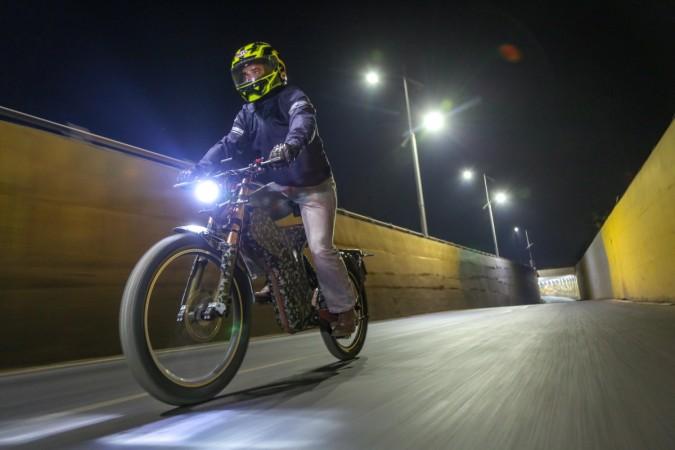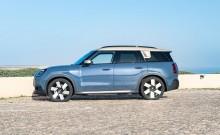If you've been watching the auto trends lately, electric vehicles (EVs) are gaining traction. While the environmental benefits of owning an electric vehicle trump all major reasons, a Pune-based startup has taken the initiative to push eBikes into the mainstream.
Polarity Smart Bikes is working towards faster adoption of EVs in India and its steadfast approach is commendable. The startup's first electric-powered two-wheeled vehicle is set to hit the roads end of this year following a brand launch in July. Although it seems like an uphill battle for this self-funded start-up, it is determined to make eBikes popular, favourable and practical in India.
We sat down with Polarity's co-founder Anand Mohan for a quick chat about his startup, which currently employs a core group of four qualified professionals and a team of 30 members on contract. Before we get down to the Q&As, here are some key highlights of Polarity's Smart Bikes:
- Lower carbon footprint
- Running costs less than Rs 15 per 100km
- No emissions
- Refuel anywhere
- Backup pedaling function
- 1.3KW hub motors
- 45-55 kg weight
IBT: What is going to be the key factor in Polarity eBikes that will convince conventional scooter/bike owners to make the switch?
Anand Mohan: Desirability and owning a Personal Mobility Vehicle (PMV). We are targeting a new segment of customers who usually only ride solo, without a pillion rider. Ours is the first such vehicle made in India to be road legal and come with a single seat. The idea was to keep the weight off the bike as low as possible so that it is more efficient than other vehicles in the market. Our bikes weigh less than 60kg and will cost less than Rs 15 per 100km.

While running costs are definitely a USP, the design also is. It's unique in its shape and concept and will definitely stand out among the sea of scooters and motorcycles. Another convincing factor is pedal assistance. While the performance of our bikes is at par with other electric scooters and motorcycles, the advantage we have is pedal assistance. We used the form of a bicycle to rid riders from range anxiety. Range anxiety is one of the main reasons that is hindering faster adoption of electric vehicles. We want to solve that by providing versatile products.
IBT: The EVs are not as popular as conventional bikes, one of many reasons is the design and performance. How will Polarity address that?
Mohan: Sachin Jadhav, the Managing Director of the company, has done his masters in automotive design from Coventry University. It's one of the top automotive design universities in the world. Following his studies, he has worked at several design firms in the UK providing design solutions for companies like JLR and Rolls Royce. The Smart Bikes designed by Polarity feature mature design language and international sensibilities. The unique design was an effort to create a new segment of Personal Mobility Vehicles (PMV) while the bicycle form gives a sense of connection to one's childhood. In terms of performance, the top spec bikes have a top speed of 100kmph, the adjustable suspension offers comfortable on-road and off-road riding and light weight makes the batteries and motors more efficient.

IBT: What makes Polarity different from other EV manufacturers and who is the biggest competitor in this field?
Mohan: Polarity's Smart Bikes have the back up of pedal assistance. If the battery is completely discharged, one can pedal back home instead of getting stranded in the middle of the road. It also saves valuable time that would otherwise be spent at the charging station. It's also a first such road legal vehicle that you will be able to park inside your house. It is light and compact enough to fit into a service elevator. You can park the bikes inside the house and use them as exercise tools. There is no direct competitor based on the style and convenience our bikes provide. However, all two-wheelers priced from Rs 35,000 to Rs 1.2 lakh will compete indirectly with our bikes.
IBT: How far are we from witnessing real performance ebikes in India?
Mohan: Performance E-Bikes are a market demand. India saw a surge in luxury motorcycling with the sale of adventure motorcycles. Before that, premium motorcycles commanded a very small market. Indians are aware that our terrain is harsh and even the roads aren't predictably smooth. An adventure bike offers that safety net and confidence to go where you want to. Keeping that as one of our key considerations, we gave our bikes adjustable suspension to allow the versatility of riding on-road and off-road. While they can go up to speeds of 100kmph, they can also go anywhere. We plan to launch our brand in July along with commencing pre-order bookings on our website. Product deliveries will commence from the end of the year.

IBT: How do you plan to bring the vehicle cost of e-bikes down?
Mohan: One of the advantages of our bikes is the minimalist design approach. The form of a bicycle and the performance of a motorcycle has its benefits. Keeping the weight of the bike to less than 60kg meant the lesser quantity of material being used in each bike. The lighter weight of the bike also ensures a relatively smaller battery and motor offering similar levels of performance. E-Bikes also get subsidy under the FAME II scheme, have 20 percent lower insurance premium and the government is also planning to introduce a lower GST slab for electric vehicles (5% from the present 12%). The issue of electric vehicles not being competitively priced are going to be addressed in the very near future.









